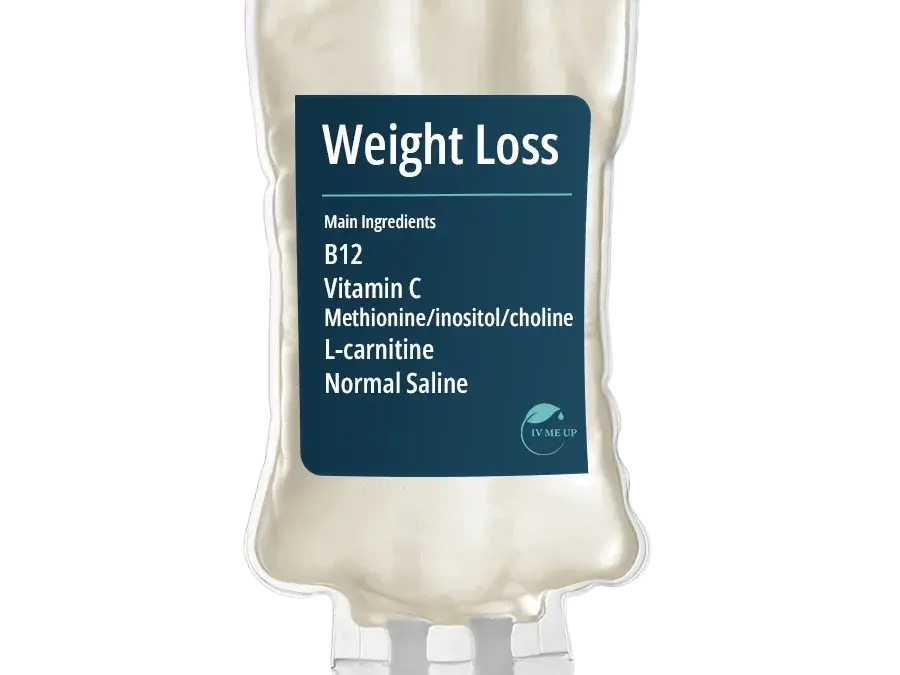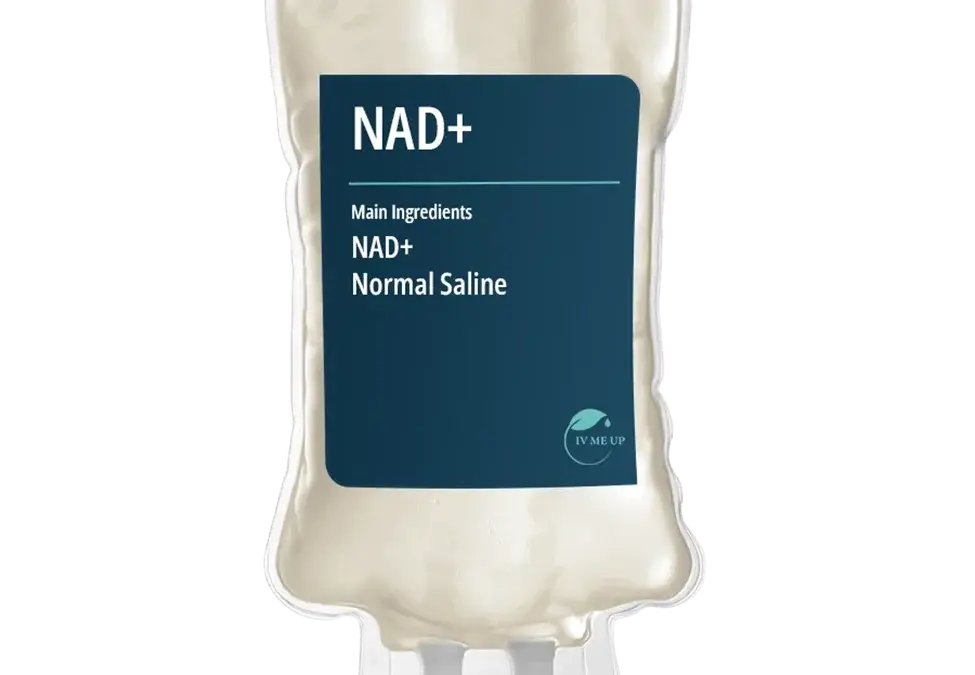The Essential Role of NAD+ in Energy Production and Hydration
- PVCreators
- Jun 24, 2025
- 7 min read
Updated: Jul 23, 2025
NAD+ is a coenzyme vital for energy production in cells. It is crucial for cellular metabolism. This compound facilitates the conversion of nutrients into ATP, the primary energy currency of the body.
Chronic dehydration occurs when the body loses more fluids than it takes in over an extended period. This situation can lead to serious health complications, such as fatigue, kidney stones, and high cholesterol levels.
Key takeaway: Understanding the connection between hydration and NAD+ levels is crucial for maintaining optimal energy levels. Proper hydration supports NAD+ synthesis and recycling. This ensures your body functions at its best.
Understanding NAD+
NAD+ (Nicotinamide adenine dinucleotide) is vital for every cell in your body. It plays a crucial role in cellular metabolism, acting as a key player in converting nutrients into energy through various biochemical processes.
Importance in Cellular Metabolism
NAD+ is essential for:
Energy Production: It facilitates the transfer of electrons in the Krebs cycle, aiding ATP production.
DNA Repair: It participates in repairing damaged DNA structures.
Gene Expression: It influences which genes are turned on or off under specific conditions.
Common Symptoms of NAD Deficiency
A shortage of NAD+ can manifest through several noticeable symptoms:
Fatigue: Persistent tiredness and lack of energy.
Brain Fog: Difficulty concentrating and impaired cognitive function.
Muscle Weakness: Reduced strength and stamina during physical activities.
Long-Term Health Implications
Insufficient NAD+ levels over an extended period can lead to serious health issues:
Accelerated Aging: Reduced cellular repair mechanisms speed up the aging process.
Increased Risk of Chronic Diseases: Greater susceptibility to diabetes, cardiovascular diseases, and neurodegenerative disorders.
Understanding these aspects underscores the importance of maintaining adequate NAD+ levels for overall well-being. Weight Loss with MIC IV and IM injections provides more insights into optimizing metabolic functions, which indirectly relate to maintaining healthy NAD+ levels. Explore Elderly IVs to see how tailored hydration solutions can benefit older adults, potentially improving their NAD+ status and overall health.
The Role of NAD+ in Energy Production
NAD+ plays a crucial role in the Krebs cycle, essential for ATP production. The Krebs cycle, known as the citric acid cycle, features a series of chemical reactions used by all aerobic organisms to generate energy. Within this cycle, NAD+ acts as an electron carrier. It facilitates the transfer of electrons from one molecule to another. This process leads to the production of ATP, the primary energy currency of cells.
1. Mechanism in the Krebs Cycle
NAD+ accepts electrons during glycolysis and the Krebs cycle, becoming NADH. This conversion is crucial for producing ATP via oxidative phosphorylation in the mitochondria.
2. Energy and Vitality
Adequate NAD+ levels ensure efficient ATP production, directly impacting overall energy levels. This translates to improved physical stamina and reduced feelings of fatigue.
3. Cognitive Function
Higher NAD+ levels have been linked to better cognitive performance. This includes enhanced memory, faster information processing, and reduced brain fog. Maintaining optimal NAD+ levels is not just about energy; it’s about overall vitality and mental clarity.
For immediate relief from stress or chronic pain that can deplete energy reserves, consider exploring specific treatments like Pain Relief Drip – IV ME UP or Stress Relief Drip – IV ME UP. These options may offer supportive benefits in managing symptoms while you work on boosting your NAD+ levels.
Chronic Dehydration: A Hidden Threat to Your Health
Chronic dehydration occurs when the body loses more fluids than it takes in over an extended period. This condition can arise from inadequate fluid intake or excessive fluid loss through sweating or illness. All ages can suffer from chronic dehydration, but older adults and athletes are particularly at risk.
Causes of Chronic Dehydration:
Inadequate Fluid Intake: Not drinking enough water daily.
Excessive Fluid Loss: Due to sweating, vomiting, diarrhea, or illnesses like fever.
Environmental Factors: Hot and humid conditions increase perspiration.
Common Signs and Symptoms:
Dry Skin: Lack of moisture leading to flaky or rough skin.
Fatigue: Low energy levels due to insufficient hydration.
Dizziness: Feeling lightheaded or unsteady.
Decreased Urine Output: Dark-colored urine indicating concentrated waste products.
Recognizing these symptoms can prevent long-term adverse effects. Athletes needing rapid rehydration might consider Athletic Drip – IV ME UP. For general hydration needs, Hydration Drip – IV ME UP might be beneficial.
Long-Term Effects of Chronic Dehydration on Your Body
Chronic dehydration can lead to serious health complications, significantly impacting overall well-being. Here are some critical long-term effects:
Health Complications
Kidney Stones: Insufficient hydration increases the concentration of minerals in your urine, leading to painful kidney stones.
Urinary Tract Infections (UTIs): Lack of adequate fluid intake reduces urine output, allowing bacteria to grow and cause infections.
Constipation: Chronic dehydration can lead to harder stools and less frequent bowel movements, causing discomfort and complications.
Cardiovascular Health
High Cholesterol Levels: Dehydration can make your blood more concentrated, leading to elevated cholesterol levels. This condition increases the risk of developing cardiovascular diseases.
Hypertension: Reduced blood volume from chronic dehydration forces your heart to work harder, resulting in increased blood pressure.
Maintaining proper hydration is essential for preventing these health issues. For more information on how NAD+ plays a role in cellular function and overall vitality, you might find this resource helpful.
By understanding these risks, you can take proactive steps to stay hydrated, particularly crucial for older adults and athletes who are more susceptible to dehydration. If you’re looking into holistic methods for maintaining hydration and energy levels, IV therapies like the IV Glow Drip offer promising solutions. Ensuring adequate daily fluid intake is one of the most effective ways to safeguard your health against long-term complications.
The Hydration-NAD+ Connection: How Proper Hydration Supports Energy Production
Hydration plays a crucial role in keeping our cells functioning well, including the production and recycling of NAD+. Drinking enough fluids creates the right environment for chemical reactions to happen efficiently, essential for generating energy.
Key Points:
1. NAD+ Synthesis and Recycling
Proper hydration is crucial for the enzymatic processes involved in NAD+ synthesis. Dehydration can impair these processes, leading to reduced NAD+ levels and subsequent fatigue.
2. Fluid Balance for Energy Production
Maintaining a proper fluid balance supports cellular activities, ensuring that NAD+ can effectively participate in ATP production. This impacts your overall energy levels and vitality throughout the day.
For those seeking to optimize hydration and NAD+ levels, understanding these connections is vital. Resources such as IV Therapy and NAD IV Therapy offer additional insights into how targeted treatments can support these goals.
By following recommended fluid intake guidelines—approximately 15.5 cups for men and 11.5 cups for women—you can prevent dehydration and support your body’s natural energy production processes.
Best Practices for Supplementing with NAD+: Choosing the Right Products for You
Selecting the best NAD+ supplement can be daunting given the variety of options available. Two popular forms are nicotinamide riboside (NR) and nicotinamide mononucleotide (NMN).
Overview of Available NAD+ Supplements
1. Nicotinamide Riboside (NR)
Often marketed under brand names like Tru Niagen.
Easily converted into NAD+ within cells.
Known for its high bioavailability.
2. Nicotinamide Mononucleotide (NMN)
A direct precursor to NAD+.
Found naturally in foods like broccoli and avocados.
Rapidly absorbed and utilized by the body.
Criteria for Choosing the Best NAD+ Supplements
Bioavailability:
This ensures the supplement is efficiently absorbed and utilized by your body. NR and NMN are praised for their high bioavailability, making them effective choices.
Efficacy:
Look for clinical studies backing the supplement’s effectiveness. Both NR and NMN have been studied extensively, showing promising results in boosting NAD+ levels and improving energy metabolism.
Safety Profile:
Pay attention to any reported side effects or contraindications. Reputable brands provide transparency regarding their product’s safety.
To ensure you’re making an informed choice, consider consulting with a healthcare professional or exploring additional resources. You might find specialized IV therapy options here, which could complement your regimen. Understanding these aspects will help you choose the right NAD+ supplement tailored to your needs. This supports optimal energy production and overall well-being.
Optimal Timing for Taking NAD+: Maximizing Absorption with Smart Scheduling Strategies
Best time to take NAD+ supplements is crucial for maximizing their absorption and effectiveness. To achieve this, consider the following strategies:
1. Morning Intake
Taking NAD+ supplements in the morning can help kickstart your metabolism and energy levels for the day.
2. With Food or Empty Stomach?
Some studies suggest taking NAD+ on an empty stomach may enhance absorption. Others recommend taking it with food to avoid gastrointestinal discomfort. Experiment to see what works best for you.
3. Split Doses
Dividing your daily dose into smaller portions taken throughout the day can help maintain steady NAD+ levels in your bloodstream.
4. Hydration Matters
Proper hydration is essential for optimal NAD+ synthesis. Drink plenty of water when taking your supplements.
Who Can Benefit from NAD+ IV Treatment?
Individuals with the following conditions can benefit from NAD+ IV Treatment:
Anxiety Helps reduce symptoms by promoting relaxation and calming the nervous system. NAD+ can aid in balancing neurotransmitters essential for mood regulation.
Depression Supports mood stabilization and mental well-being. It enhances brain cell function and improves neural connections.
Dementia: Aids cognitive function and memory retention by protecting neurons from damage.
Addiction Recovery: Assists detoxification by replenishing vital nutrients lost during substance abuse and helps reduce cravings.
Diabetes: Enhances cellular metabolism and energy levels by improving insulin sensitivity and supporting glucose metabolism.
Insomnia: Improves sleep quality and overall restfulness by regulating circadian rhythms and supporting melatonin production.
Joint Pain Reduces inflammation and promotes joint health by supporting tissue repair.
In conclusion, maintaining adequate NAD+ levels is crucial for overall health and well-being. Proper hydration plays a vital role in supporting NAD+ function, which influences energy production and cell metabolism. Chronic dehydration can exacerbate NAD+ deficiencies, leading to long-term health complications. Therefore, it’s important to stay hydrated and consider appropriate NAD+ supplementation. This can support various aspects of health, including mitochondrial health, cognitive function, addiction recovery, diabetes management, sleep quality, and joint health.
By understanding the importance of NAD+ and adopting best practices for supplementation and hydration, individuals can enhance their vitality and mitigate the risks associated with NAD+ deficiency.




Comments